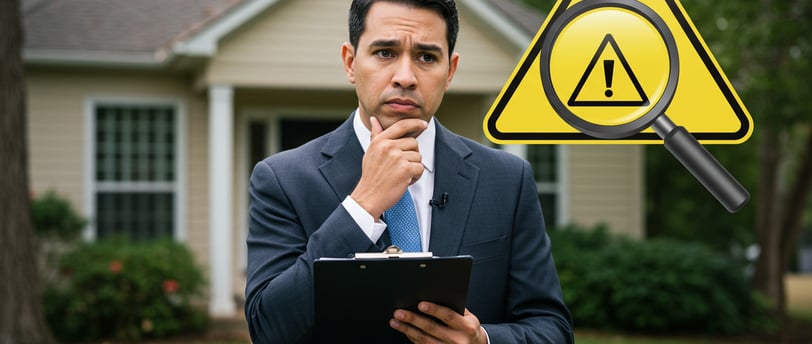Legal Implications of Home Inspections
Real estate agents must navigate disclosure laws and liability risks tied to home inspections. Learn what you’re legally required to share and how to avoid costly mistakes.
HOME INSPECTIONOLDER HOMESTIPS FOR SUCCESS
4/30/20252 min read


Buying or selling a home is one of the most significant transactions many people will ever make. That's why home inspections are a critical part of the process—offering protection, clarity, and negotiation leverage for all parties involved. However, for real estate agents, home inspections also carry legal implications, especially around liability and disclosure obligations. Understanding these legal responsibilities is essential for agents who want to protect themselves, serve their clients ethically, and comply with state and local laws.
The Agent’s Role in a Home Inspection
A real estate agent is not expected to perform or interpret a home inspection. However, they are expected to:
Recommend that buyers obtain a professional inspection
Help facilitate the inspection process
Advise clients based on the report’s findings
Fulfill legal obligations related to disclosure
While agents act as intermediaries, they must be careful not to misrepresent or downplay inspection findings, as this can lead to serious legal consequences.
Disclosure Obligations: What Agents Must Share
1. Known Material Defects
In nearly all states, real estate agents are legally obligated to disclose known material defects—issues that would significantly affect the home’s value or pose safety concerns. These might include:
Structural damage
Mold or water intrusion
Electrical issues
Roof problems
Pest infestations
Even if the seller prefers not to disclose a known issue, the agent has a legal and ethical obligation to do so.
2. Third-Party Reports
If a home inspection uncovers defects, the buyer’s agent may be required to share that report with future buyers if the original deal falls through. Similarly, the listing agent may be responsible for updating disclosures based on new findings.
Failing to update disclosures when new information comes to light could result in a lawsuit for misrepresentation or fraud.
Liability Concerns for Real Estate Agents
1. Misrepresentation or Concealment
Agents can be held liable if they misstate the condition of the property or fail to disclose known issues. Even if the misrepresentation was unintentional, it can still lead to a legal claim for negligent misrepresentation.
Example: If an agent says, “The roof looks great,” when they actually know the inspection revealed leaks, that could be considered deceptive.
2. Vicarious Liability
In some cases, agents may be held responsible for the actions of others involved in the transaction, such as contractors or inspectors they recommend. To protect themselves, agents should:
Recommend multiple licensed inspectors instead of one
Clarify they are not guaranteeing the work of third parties
3. Failure to Recommend an Inspection
If an agent discourages a buyer from getting a home inspection—or fails to advise one in a situation where it's clearly needed—they could be found liable for losses the buyer suffers later on.
Reducing Legal Risk: Best Practices for Agents
Encourage Full Inspections
Always recommend a complete home inspection by a licensed professional, and document that recommendation in writing.Disclose, Disclose, Disclose
When in doubt, disclose any known issues. Full transparency builds trust and reduces legal risk.Avoid Making Assumptions
Never offer technical opinions outside your expertise. Avoid statements like “That’s probably not a big deal” or “Looks fine to me.”Use Standardized Forms
Use legally approved disclosure forms and checklists to ensure compliance with state laws.Stay Updated on State Laws
Disclosure laws vary from state to state. Regular training and legal updates are essential to staying compliant.
Conclusion
Home inspections play a critical role in real estate transactions, but they also come with legal complexities—especially for agents. By understanding your disclosure obligations and avoiding common liability traps, you can protect your clients and yourself from potential legal fallout. Transparency, professionalism, and documentation are your best allies in navigating the legal implications of home inspections.
Quantum Scope Inspections
Your Home’s Health, Our Top Priority
get the Home Seller's Handbook, 2025 Edition
Maximize your investment with repairs and maintenance, on Amazon.
© Quantum Scope Inspections 2025 | All Rights Reserved | Privacy Policy
Website Design by Creative Web Design Lab
